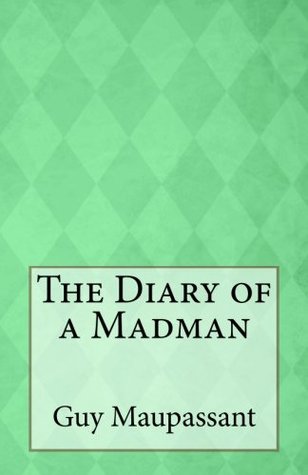Rating: ★★★★
16/11/13?
*Una reseña que me olvidé de subir/An old review I forgot to post.

Encontré a Pessoa por
El libro del Desasosiego. Como todavía no llegó, quise empezar a conocer a este autor (sobre el cual he leído varias opiniones y me interesó mucho) y di con
Un Banquero Anarquista, que trata sobre una conversación entre dos amigos; uno de ellos, como puede deducirse, es un banquero que se denomina anarquista. El otro muchacho no puede conciliar la idea de que este hombre sea anarquista; una persona que se enriquece mientras defiende un sistema libre que predica en contra de toda desigualdad. Durante varias, quizás demasiadas líneas, intenta entender cómo esta persona puede ser anarquista tanto en la teoría como en la práctica; mientras que aquel le refiere que no hay desacuerdo entre ambas, puesto que considera que “ellos, los de los sindicatos y las bombas (yo también estuve allí y salí de allí precisamente a causa de mi verdadero anarquismo), ellos son la basura del anarquismo, los hembras de la gran doctrina libertaria”. Divide su realidad entre anarquistas estúpidos y anarquistas inteligentes, algo que resulta presuntuosamente molesto. Pero eso es personal, nunca pude ocultar mi “molestia” ante personas que se creen más inteligentes que otras y lo hacen saber. Si sos inteligente, excelente, la gente lo podrá percibir sin que te pongas un cartel luminoso en la frente que lo diga. Quizás no es molestia molestia; no sé, no me dan ganas de tratarlos.
En fin, el banquero cuenta por qué se volvió anarquista, relatando algunos hechos con los que no es difícil estar de acuerdo. Creo que en algún momento, todos hemos sentido esa rebelión interna de la que se habla acá. No sé si como para llegar al punto de rebelarse contra toda convención y fórmula social (ficciones, como las llama este señor) hasta su abolición, pero bueno. Algunas de sus ideas son razonables, otras, son ridículamente contradictorias, por más argumento que le intente dar. Intencionales, por supuesto, ya que determinadas ironías son las que hacen que este cuento tenga mayor impacto y se pueda comparar con lo que realmente se vive. Un banquero, alguien en el sistema, en búsqueda y contacto permanente con el dinero, es anarquista. O sea... Sos un ban-que-ro.
1. “Para el anarquista, es claro, quien está en el lugar de enemigo es cualquier representante de las ficciones sociales y de su tiranía”.
2. “Soy banquero”.
Es muy gracioso. El tipo te envuelve con lo que parecen sólidos argumentos (igual, eso es un plus: no anda diciendo frases hechas de por ahí, intenta respaldarlas con el uso de su razón, aunque no sean más que sofismas, ¡pero al menos se toma el tiempo!). Sin embargo, todo vuelve a lo mismo de siempre, la libertad, el individualismo, que se logra relacionar íntimamente con el concepto de riqueza, alejándose de los ideales del anarquismo. Se plantea subyugar una feroz ficción social: el dinero. Solo se puede dejar de ser esclavo del dinero... teniendo mucho dinero. Fantástico.
Esta conversación se vuelve interesante a medida que avanza, y densa, difícil de imaginar con café y torta de por medio, llegando a verse más como un monólogo. Hasta que aparece algún “sí”, “entiendo” por parte de la otra persona, que quisiera saber si realmente está entendiendo. Ya en esa instancia, me imagino su cara... Y yo, en esa instancia, ya estaba medio saturada de tantos conceptos repetidos. Terminaron de cenar, pero ¿qué bebió para sentir la necesidad de decir y repetir lo mismo en cada comienzo de oración? Indudablemente, quien lea este libro, entenderá qué es el anarquismo. Lo entenderá varias veces. Lo entenderá una vez por página. Lo entenderá como yo entendí varios aspectos de Derechos Reales, donde cada vez que me la nombran recuerdo “anualidad purga el vicio”, “anualidad purga el vicio”, tras leerlo 23.456 veces.
Fuera de eso, me gustó mucho. Podría ser realmente tedioso, pero Pessoa tiene una particularidad en su escritura que evita llegar al aburrimiento, teniendo en cuenta que el tópico que trata no es particularmente Disneylandesco. De todos modos, el tema te tiene que interesar, sino esto lo largás en la segunda página.
* Tapa de libro via Goodreads.













